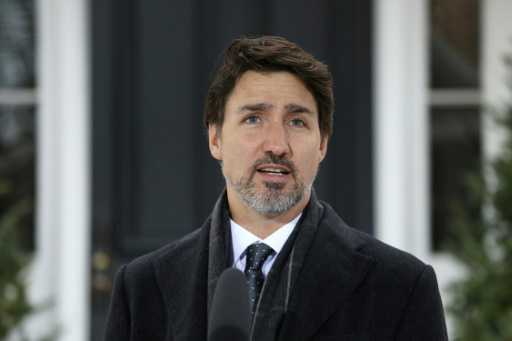Canada bans assault weapons after deadliest shooting
02 May, 2020

Canadian Prime Minister Justin Trudeau on Friday announced an instantaneous ban on military-grade assault weapons in response to the country's deadliest-ever mass shooting, a rampage that left 22 people dead last month.
"These weapons were suitable for one purpose, and one purpose only: to kill the most significant number of people in the shortest period of time," Trudeau told a news briefing.
He said his government has approved a decree banning the sale, purchase, use, transport and import of just one 1,500 models of military-grade assault weapons and their variants.
"There is absolutely no use, no place for such weapons in Canada," Trudeau said.
The killing spree began on the night time of April 18 in Nova Scotia and resulted in a 13-hour manhunt for the shooter, who was simply eventually shot dead by police.
Authorities have said the assailant -- determined as 51-year-old denturist Gabriel Wortman -- was wearing a police uniform, driving a mock police car, and had several guns with him including at least one assault-style weapon.
"For most families, including indigenous people, firearms are part of traditions passed down through generations, and almost all gun owners use them safely, responsibly, and relative to the law, whether for work, sports shooting, for collecting or for hunting," Trudeau said.
"Nevertheless, you don't need an AR-15 to lower a deer," he added.
Mass shootings are less common in Canada than in the United States "however the heartbreaking truth is, they're happening more often than they once did," the prime minister said.
"Events like the recent tragedy in Nova Scotia, the attack in 2017 at the Centre Culturel Islamique de Quebec and the massacre that took place in 1989 at Ecole Polytechnique de Montreal shouldn't have happened," he continued.
On January 29, 2017, a guy known for his far-right, nationalist sympathies opened fire on worshippers praying at the Quebec City mosque, killing six people and seriously injuring several others.
And on December 6, 1989, a 25-year-old man claiming to be an "anti-feminist" burst into classrooms at Montreal's Ecole Polytechnique armed with a gun and a knife and shot exclusively at women, killing 13 female students and a secretary.
That tragedy, at the time unprecedented in Canada, led to the creation in 1995 of a mandatory gun registry.
Nonetheless it was abolished for hunting guns in 2012 by then-premier Stephen Harper's Conservative government.
Trudeau made banning assault weapons part of his campaign for elections that brought him to power in 2015. He repeated the pledge while campaigning for the October 2019 elections in which he won another term.
Nearly four of five Canadians back such a ban, according to an Angus Reid poll released Friday.
But a fracture on the problem between urban and rural elected officials within Trudeau's Liberal party had led him to stall as yet.
Trudeau said you will have a two-year amnesty for folks who currently own assault-style weapons to safeguard them from liability, and parliament will eventually pass legislation to compensate them for submiting their guns -- though survivors of previous shootings have expressed concern that the buy-back program may not be mandatory.
Ottawa says there are currently a lot more than 100,000 guns in circulation in Canada which would are categorized as the new prohibitions.
Among the weapons now banned will be the Ruger Mini-14, found in the Polytechnique tragedy; the VZ 58 rifle, used in Quebec; and the M16, AR-10 and AR-15 rifles.
The latter three models have been used in the last decade to handle the devastating Sandy Hook, Las Vegas and Orlando mass shootings in america and the Christchurch massacre in New Zealand.
Source: japantoday.com
